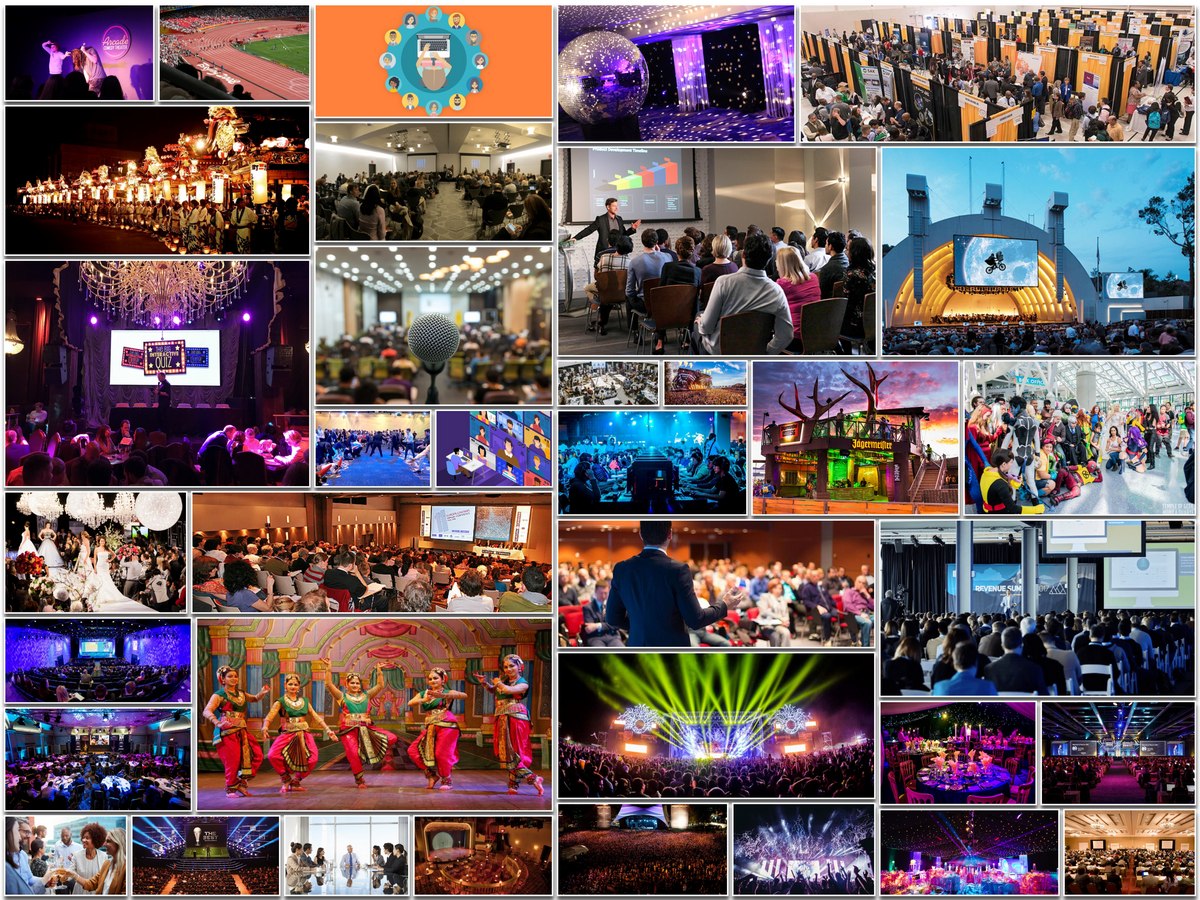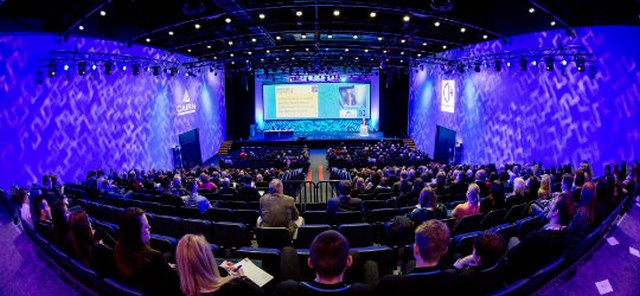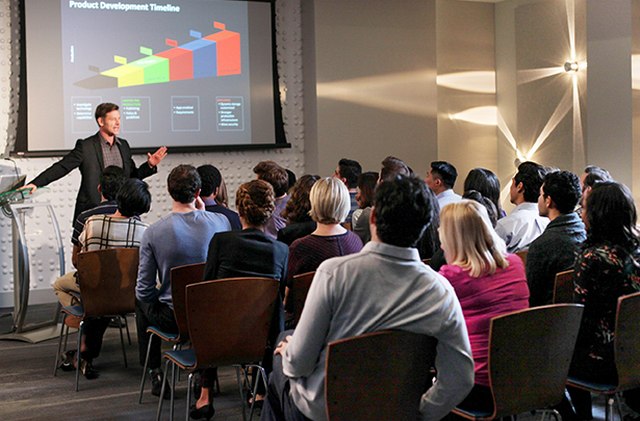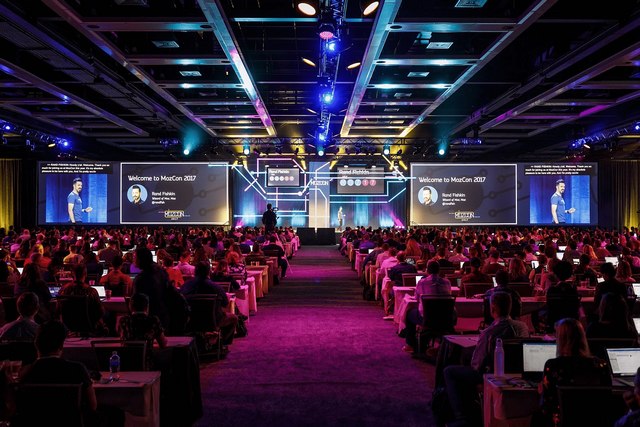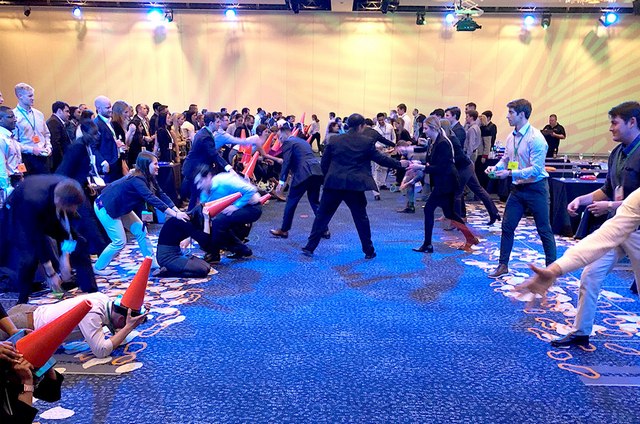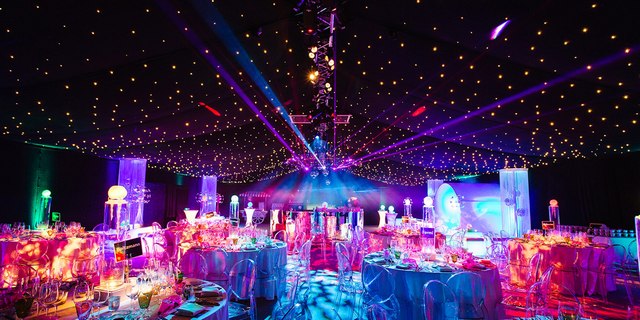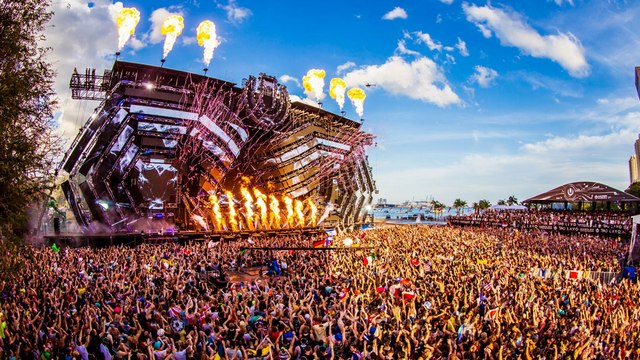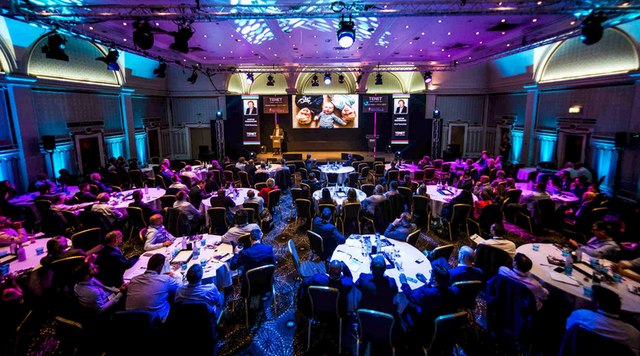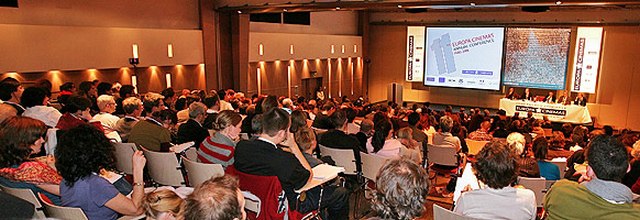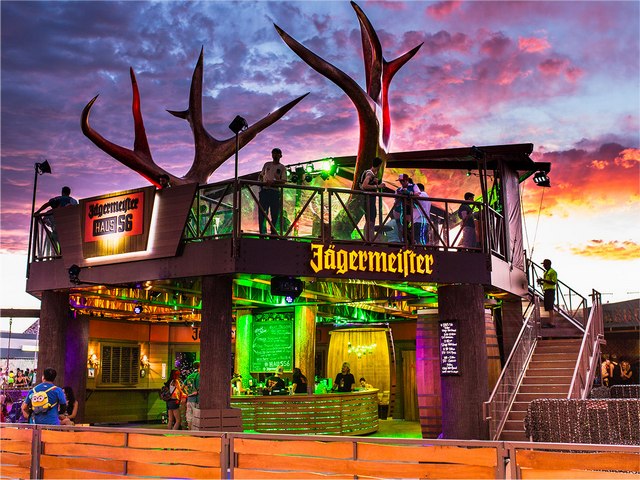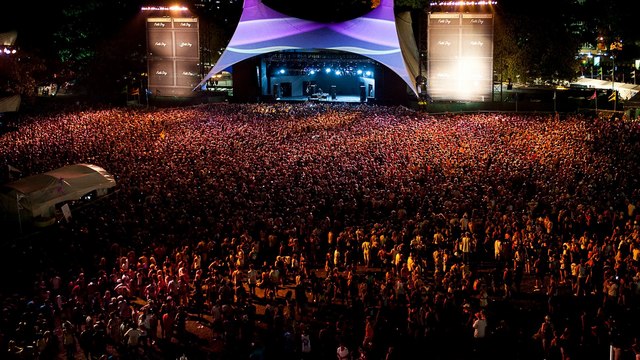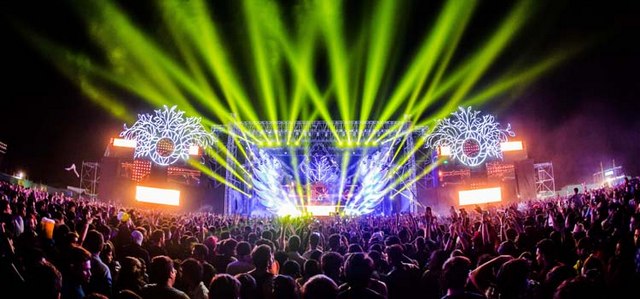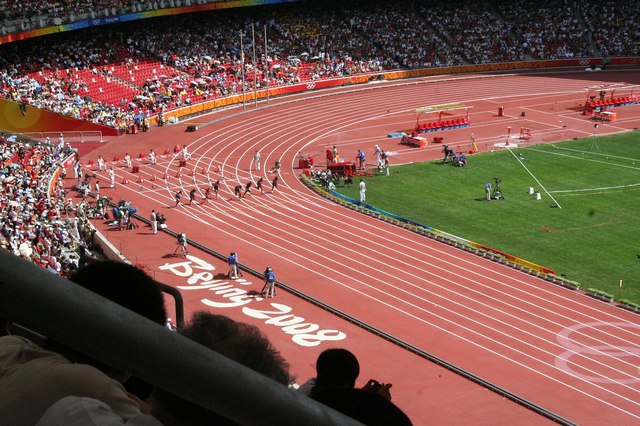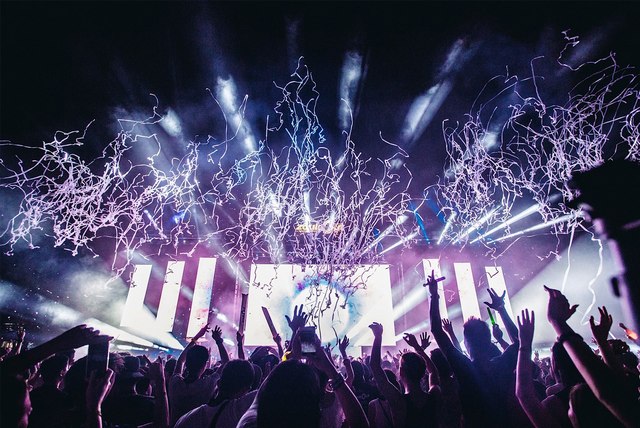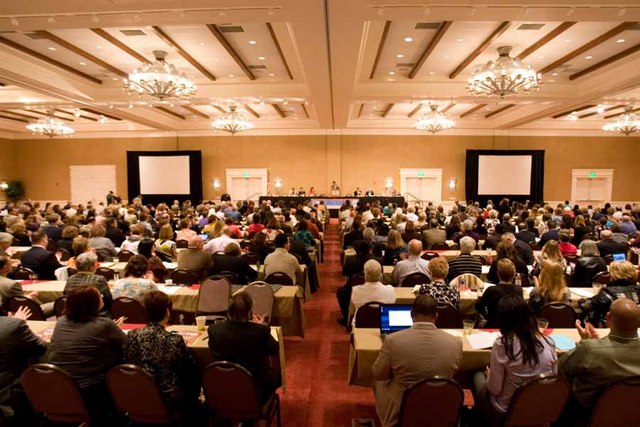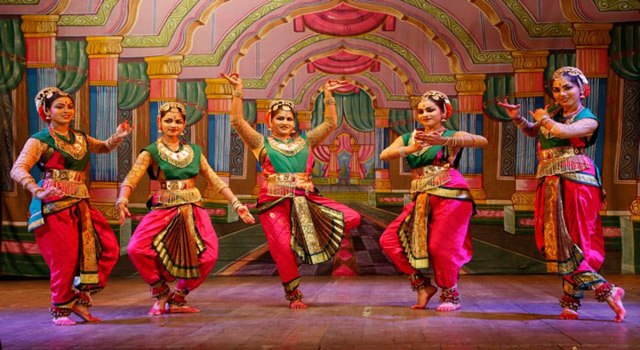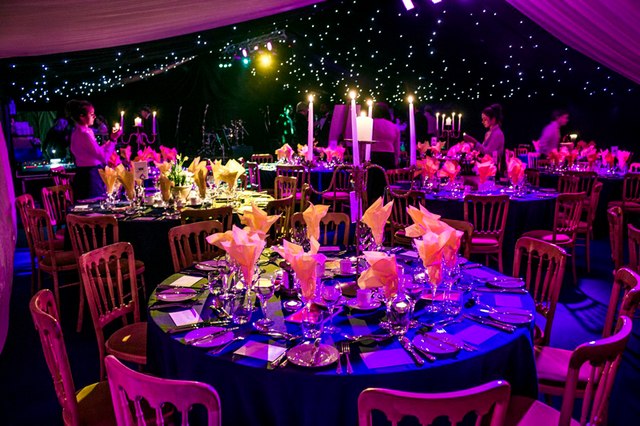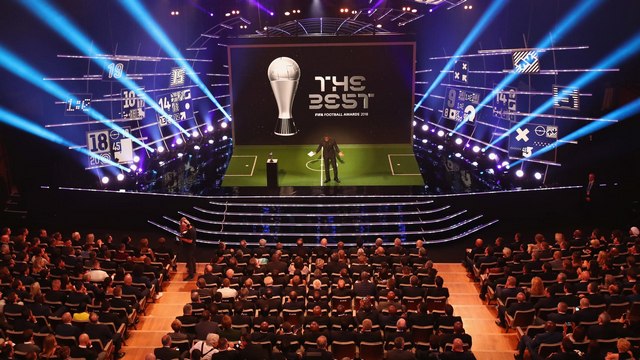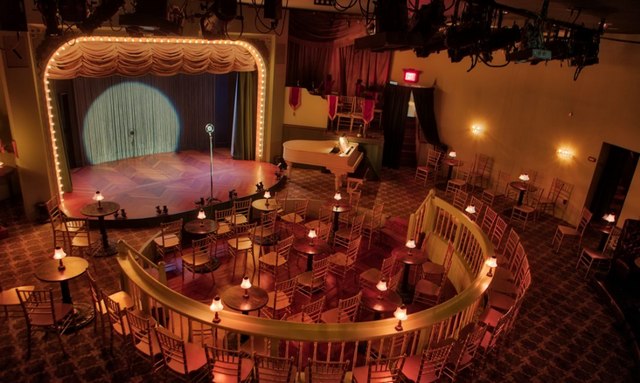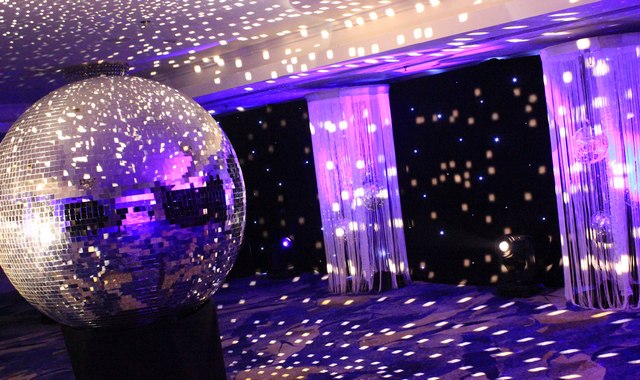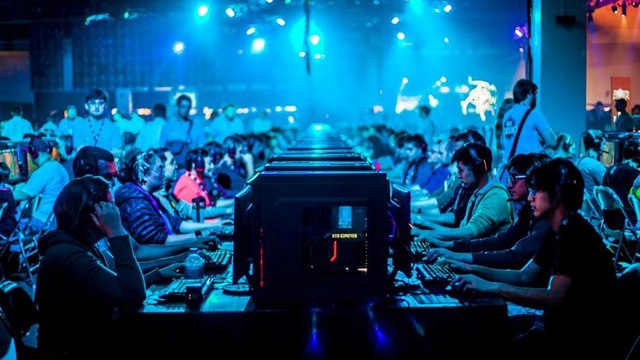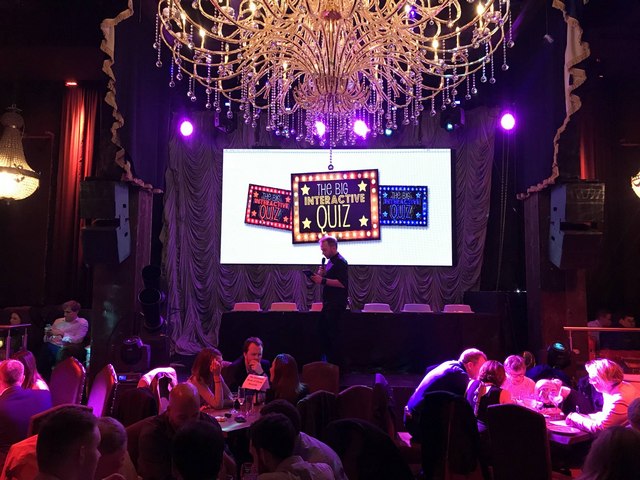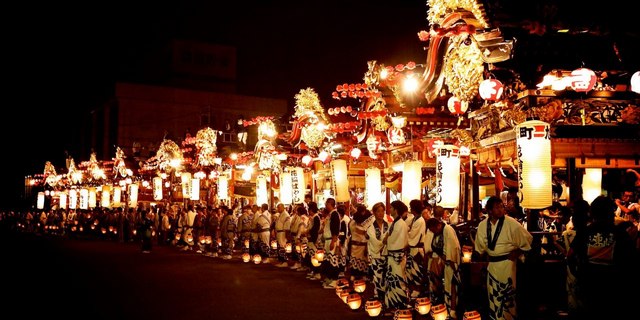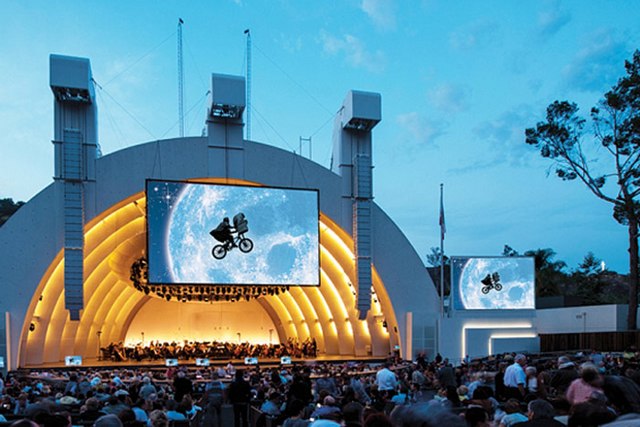When done properly, events are an essential part of any marketer’s toolbox, can be very rewarding, and can be the most powerful brand extension. Being able to do something in person with your key target audience or fans is great, as email will never replace great events where people can actually get to know your brand. Consumers or fans can more visibly “touch” your brand and consume it only through events. No, even social media can hold a candle to spice things up and allow people to interact with you, your brand, or your celebrity.
We know there is an event for everyone – it makes life so exciting for both event organizers and visitors. Each event has its own unique set of requirements, from ticket counts to location size and budget allocation.
Note: All types of Events shown in this page are in alphabetical order.
Different Types of Events Names With Pictures
The event industry is a massive enterprise. In the United States, there are more than 25,000 events held yearly. Explore the 66 types of events you should know. Here is the latest list of all types of events names with pictures and images that you should know about.
1. Conferences
The goal of any large conference is to organize a group of people with similar interests and provide them with useful information on topics of interest to them. Conferences usually schedule multiple sessions, spread out over days, weekends, or, in some cases, entire weeks.
Conferences are a popular addition to any event strategy as they may be available depending on the number of participants. They are held in small locations such as conference rooms or in locations the size of entire conference rooms. General conference activities include invited speakers, group sessions, and networking opportunities.
2. Seminars
A seminar is a kind of corporate event organized taking into account the target audience and aimed at providing them with the most relevant information. The seminar can be held on-site, at company headquarters, or even online using appropriate business communication tools and technologies. Typically one speaker or a small number of speakers speak to the audience, so finding speakers and reaching out to potential sponsors should be high on your seminar planning list.
3. Internal Company Meetings / Periodic Business Gatherings
Internal company meetings and recurring business meetings are events used to discuss a selected group of topics with the aim of assessing progress, helping to launch projects, or solving a specific problem. They are common in companies with more than 25 employees, but smaller companies can also benefit from these kinds of events.
This type of event usually includes an agenda, coordinating room rentals or reservations, arranging audiovisual equipment for presentations, and scheduling lunch for attendees based on the time of day, all of which can be handled with modern event software. Depending on the formality or timeliness of the topics covered, planning such an event can take from several months to several hours.
4. Trade Shows / Expos Events
Trade fairs and exhibitions aim at the professional presentation of new products and services of various related brands. Typically, these events have a theme that unites the booths.
Trade shows and expos are especially useful for prospects who have not yet discovered your product or are looking for additional information in person. This type of event is useful for companies looking to increase the number of personal interactions with their customer base.
5. Thought Leadership and Networking Events
The purpose of thought leadership events and networking events is to represent brand credibility in a specific area and provide an opportunity for people with relevant business interests to meet and interact. This type of event can include VIPs or more geared towards a general welcome.
Whether you plan an intimate meeting or a luxury event, thought leadership and networking are a tool for establishing a product or service in your industry. To get the most out of this type of event, be sure to include experts from your company as presenters or organizers, and include several event marketing strategies with little touches in your plan.
6. Ceremonies / Galas
Ceremonies and galas serve different purposes, but these formal events have one thing in common: they provide an elegant way to present a brand, its product, or service. Whether it’s a black-tie fundraiser at a rented art museum or the start of an annual conference, ceremonies and galas are a sophisticated way to celebrate a special occasion.
All ceremonies and galas provide entertainment, from live music to performances. Regardless of what’s on the agenda, these types of events favor entertainment over productivity and allow participants to enjoy good drinks and food.
7. Product Launches
A sales-oriented event, a product launch, increases interest and general media coverage of new products, services, or updated features. They play a critical role in product marketing and, if done well, have the ability to significantly increase brand awareness even before the general public has a chance to use it.
Invited guests from the media often participate in the product presentation and talk about the presented product. The success of these soirees is largely determined by the timing of the event, the attention to detail, and the overall level of satisfaction of those present.
8. VIP Events
VIP events (or sales boost Events) aim to provide the most influential shareholders, customers, and other VIPs with an exclusive (and impressive) experience. The goal of any VIP event is to ultimately increase revenue by maintaining the loyalty of these key figures.
Events like this are usually catered for and include free admission and travel services for those coming from outside the city. Knowing your audience is especially important to ensure they have a truly enjoyable experience and cater to their unique interests.
9. Job Fairs / Recruiting Events
Most job fairs and recruiting events aim to find and secure talent across a range of departments. These types of events, usually held at colleges and universities, are popular with startups or companies looking for fresh minds to help expand their business.
Potential recruits benefit from the personal interactions they receive from these types of activities. They can talk to real employees for inside information about the work environment, benefits, and details of their ideal job candidate. Making a strong impression at a job fair or hiring event today can pay off in decades.
10. Team Building Events
Team building events are in-house meetings aimed at providing fun and engaging ways to connect employees. Usually, the goal is to make it easier to build relationships so that employees can become better leaders and employees. It is also a useful way to introduce people from departments without direct contact with each other.
Depending on the planned activities, team-building activities can be motivating, inspiring, and educational. Classic examples of team-building activities include obstacle courses or other indoor or outdoor exercises (weather permitting). But events like hackathons and others can be classified as well. Team building activities should focus on building confidence, boosting morale, and increasing productivity.
11. Field Marketing / Activations
Most field marketing or brand activation activities aim to form stronger emotional bonds between the company and its audience. Since relationship building is the main focus of this type of event, it is especially important to know which specific audience you are targeting in order to plan the events accordingly.
A field marketing event is usually held out of the office, in an area where the potential target customers and relevant audiences are located in the center. This type of event often promotes sales and provides many strategic opportunities for collaboration in marketing and sales.
12. Workshop Events
While many B2B event organizers fall into one of the above three categories, it is important to consider the value of seminars, workshops, and training sessions as they can help businesses connect with both staff and the public. Whether you want to gather employees to brainstorm or help your target audience better understand your product, workshops are like a huge class with a focus on training.
And to add a little fun to your corporate events, organizing an awards ceremony is a great way to say thank you to staff and suppliers.
13. Reunions Events
From meeting old classmates or family members to an important anniversary event, reunions are usually a very personal event. Speeches, a DJ, played songs that everyone danced to, slideshows with old photographs – in fact, the event should help people remember. In addition, hiring a photographer and videographer will record new memories that will be created. Since guests can live in different locations around the world, starting a date early will be extremely beneficial so that people can plan their trips ahead of time.
14. Party Events
A great event planner will always find a reason to celebrate, and organizing a themed party can really help when it comes to marketing, decorating, and catering. A creative idea can be timeless – from intimate gatherings to events with a huge guest list – Alice in Wonderland, superheroes, murder mystery – or adapted to a specific date or occasion, such as Eurovision, Pride, Coachella.
15. Guest Speaker Events
A speaker presentation is one of the most common forms of B2B event marketing. In terms of your time and budget, you usually don’t need to invest that much when you invite one presenter to speak.
If you’re just starting out, invite a speaker who is a leader in your industry to give a presentation. They need to discuss a topic that is important to your customers and potential customers.
Sometimes people pay for a speaker, but this isn’t always necessary, especially if you’re starting out with event marketing. The goal is to find someone who can benefit your clients and potential clients.
16. Networking Event Sessions
Every business professional knows the importance of networking. This can be useful for your current job or your career in general. An online lesson does not require an educational element – no speakers are needed! This means that all you need on the day of the event is a place and a small kitchen.
17. Event Sponsorship
An event sponsor is a company that supports an event, usually providing funds in exchange for something of value. This “something of value” often manifests itself in increased brand awareness, access to attendee data, performance opportunities at events, or discounts on tickets to events.
18. Awards and Competitions Events
Awards and competitions are a great way to talk to people. Winners love to share their successes – you don’t even need to ask them to share on social media!
Apart from the nominees and winners who spread the word, the awards are a great opportunity for press coverage. Invite the media, and you will help them do their job by giving them something to write about.
The prizes are used by both B2B and B2C companies. Their presentation confirms that the hosting company is an industry leader in helping build brand reputation and market their products or services.
Some prizes are accompanied by live competitions rather than a written request. Winners are determined locally, not by a panel of judges before the awards.
19. Festival Events
Festivals and parties are all about creating entertainment for your customers and your target market. A B2B event can have a more targeted audience – you are especially inviting partners, customers, and valuable leads.
B2C events like festivals often attract a much larger audience in order to build brand awareness. This is especially true if there are entry costs.
For example, festivals are open to anyone and everyone who wants to visit them! A festival can be a small community event or a big brand event.
20. Private Events
Private Event Special Occasion Permits (SOPs) are for occasional and special events that only invite family, friends, and people known to the host or permit holders, such as a birthday or wedding. Private events may not be advertised or made open to the public.
21. Corporate Events
A corporate event is any form of event, hospitality, or social activity that is organized or funded by a commercial organization.
Companies organize events for many reasons: they may want to educate, reward, motivate, celebrate, celebrate key milestones, manage organizational change, or encourage collaboration. Whatever the reason, there is a way out.
22. Company Meetings
These are usually more formal events where key stakeholders, board members, and shareholders come together to discuss performance. While many companies will retain these key examples, other businesses will use them as an opportunity to demonstrate business success and as an opportunity to reward and thank shareholders.
23. Congress Events
Congresses are a cross between a conference and an exhibition, and they usually focus on a specific topic. Specialists in a specific field will come here to discuss their areas of expertise (this is a particularly popular format for corporate events in the healthcare and pharmaceutical sectors). Companies often send their employees to them for educational and informational purposes. They also give your employees the opportunity to be perceived as thought leaders in their field, so they are a great tool for career advancement. They often provide opportunities for companies to exhibit, launch products, and sponsor key destinations.
24. Hospitality Events
This is often the event that the general public most often associates with the term “corporate event.” Hospitality is commonly used to reward, stimulate and build relationships both internally with employees and externally with customers and suppliers. It ranges from a simple dinner to VIP experiences at sporting events and music concerts. Oftentimes, companies sponsor an event by receiving branded hospitality and visibility packages during the event, which can happen at different levels, from a local rugby club or soccer team to sponsoring O2 sports arenas.
25. Experiential Events
Experienced events are becoming increasingly popular as companies seek to forge closer relationships with their customers. The idea is to immerse members in the brand and exchange messages through a fun and memorable experience. By aligning positive emotions with your brand or business, customers are more likely to want to invest in your products or services because they will feel emotionally connected to them.
26. Charity Events
The charity event has two goals: to raise awareness about a specific cause and to raise money. People are naturally very compassionate and willing to donate to your organization to make a difference. To better plan, your charity events, follow these steps to increase attendance and increase your donation.
27. Live Events
Live performances, including theater, music, dance, opera, using production equipment and services such as staging, scenery, mechanical elements, sound, lighting, video, special effects, transportation, packaging, communications, costumes, and make-up. They all have the same goal: to convince a living audience that there is no better place right now for them to be. This is achieved by establishing a connection between the performer and the audience. Live performances typically use visual sets, lighting, costume enhancement, and a shorter history of visual projection and sound enhancement.
28. Musical Events / Concert Events
A concert is a live musical performance in front of an audience. A musician can perform by a single performer, sometimes called a recital, or by a musical ensemble such as an orchestra, choir, or band. Concerts take place in a wide variety of settings: from private houses and small nightclubs, special concert halls, arenas, and parks to large multipurpose buildings and even sports stadiums. Indoor concerts in the largest venues are sometimes referred to as arena concerts or amphitheater concerts. Unofficial concert titles include show and gig.
Regardless of the venue, musicians usually perform on stage (if it is not real, then an area of the floor designated as such). Concerts often require live performance support with professional sound equipment. Before the music was recorded, concerts provided the primary opportunity to hear the musicians play.
29. Golf Events
Golf outings is a favorite activity of almost every organization. Relationship management is a primary goal, and teams are often created for this.
As with the retreat of leaders, the idea is to give people in the organization a place where they can build relationships in a relaxed way. There is a reason that the phrase “deals are sealed on the green” was coined.
30. Appreciation Events
These programs allow the event organizer to spend informal time with their guests in an unconventional setting, allowing both parties to build relationships and learn more about each other’s business priorities.
Appreciation events can range from employee appreciation programs to customer assessment programs that have become a key element in corporate America.
31. Board Meetings and Shareholder Meetings
Board meetings and shareholder meetings serve primary purposes. Board meetings are an opportunity for board members to meet to discuss performance and meet with company leaders to make important decisions. Shareholders’ meetings provide companies with the opportunity to share with their shareholder’s recent results, goals, future goals, and business strategies.
These two types of meetings, held annually, every two years, or even quarterly, can be small internal board meetings of board members or prestigious large-scale business events for shareholders, the size of which varies according to company size and turnout.
32. Special Events
This includes all kinds of festivals, concerts, shows, tracks, mass events, and roadshows. This is a collection of events that have a beneficial effect on your image. Hosting a special event can relieve stress on your audience as well as pay close attention to your brand.
33. Bridal Events
For organizing weddings and wedding receptions. Skills are required to set up on-site, organize dinners, lunches, or tea, and prepare flower gifts and make a guest list.
You need to be creative in the design of the hall, flower arrangements, color combinations, music selection and know what will make the event truly unforgettable for the couple and the guest.
For them, it happens once in a lifetime!
34. Commemorative Events
Public events to promote civilians or non-governmental persons or even memorials.
If this is a festive event, you will need skills in theme planning, entertainment, and food.
On the other hand, if it is a memorial, you need to be familiar with ethnic customs and have special empathy skills to reduce the burden of loss on the deceased.
35. Sports Events
Another event that requires compliance with a number of rules is sports competitions. This type of event can be local, for example, on a city scale, but it can also be national or even international in nature. The best example is, of course, the Olympics!
Even if you don’t need to organize sports events, you should know that they are still quite common. The main difficulty is getting all the necessary permissions to create it.
The peculiarity of a sports event is that it can last from several hours to several days, depending on its size.
36. Leisure Events
Leisure management of events is one of the most diverse and interesting areas. The leisure event management company provides services such as the management of facilities in sports grounds, parks, recreation centers, entertainment venues, organizing a festival or celebration, sporting events, and much more.
The leisure event companies manage these activities with a dedicated and enthusiastic team that reaches the target audience. The professionals in the field will know what is needed to plan and administer these events. The best professionals will understand events and plan them based on their needs.
The leisure event manager will improve its performance by leveraging new technologies such as movie theater screens and sound systems, exercise equipment, or walking with white knuckles to engage visitors, motivate and engage audiences, and more. They also focused on staff, managed to organize events without embarrassment, and made the party fun.
37. Organizational Events
Organizational events can include political, charitable, and trade events as well as sales events such as product launches and more. A company hosting an all-day event for several thousand people will require catering, entertainment, and accommodation for all guests. It will be necessary to appoint event staff, choose a room for the event, determined to seat and, of course, determine the budget for the event. The organizational event management company will have experience in all of these areas.
Plus, these companies can be hired for more than just planning and running the event. They can also participate in the implementation of communication, marketing, and branding strategies. The event organizer understands the technical, logistical, and creative factors that make an event successful. This includes audiovisual production, event design, logistics, scripting, negotiating, budgeting, and of course, customer service.
The event organizer must make the right decision to decorate the stage in a more creative and attractive way, based on the theme of the organizational events. The qualities of the best event manager are to work effectively with technical plans and to know how to get the message across to the audience. Event companies need to hire experienced marketing, communications, and brand plan manager. The manager needs to know everything, not just the plan.
38. Cultural Events
Cultural events are held mainly to enrich the ancient culture of the city. The cultural activities team will create unforgettable outdoor spectacles, unexpected art, games, unique festivals, entertainment, and more with the courtesy of local authorities. Every year there will be cultural events with innovative programs and activities, entertainment, advertising, and more.
Organizing and holding a cultural event is not easy; it requires a lot of hard work. Cultural event managers will focus on presenting artistic and cultural programs to the public. Managers also have to take care of the local culture, plan for the place, health care, comply with safety rules, and also earn money. The cultural event organizer must have skills in finance, art marketing, public relations, and the latest technology.
39. Executive Retreats Events
Executive retreats and incentives usually go hand in hand structures where individual work is rewarded by extending an invitation to the executive retreat.
Executive retreats are usually held at desired locations and luxury resorts, and while some time is usually spent developing an organizational strategy for the coming semester, there is plenty of time for relaxation, study, and field trips to be part of the travel incentive bonus.
Executive retreats are one of the most expensive in-house corporate events based on cost per person and cover all aspects of event management. If you want everything to go smoothly, they should be approved by a professional.
40. Fandom Events
Pop-cultural events and geeks in Australia are gaining momentum, following in the footsteps of global success stories such as Comic-Con. Fandom events can range from niche local gatherings to multi-day conventions, but the general concept is the same: gather a group of passionate fans from a specific community in one place.
41. Virtual Events
With technological advances in today’s hyperconnected world, it is no longer necessary to provide a physical venue for a successful event. More and more event organizers realize the benefits of asking attendees to connect to an online event from their workplace, home, office, or hotel room – instead of making a reservation for everyone.
Virtual events can range from training courses and workshops right up to large-scale conferences and are often held in real-time for participants to ask questions or chat with the facilitator.
42. Food and Drinks Events
As with festivals and fairs, food and drink events usually involve many people who gather to enjoy an incredible selection of deliciousness.
Trends come and go quite often at food and drink events, from the food truck frenzy to certain dishes like cheese or dumpling festivals and large-scale brewing festivals that generate a lot of resonance.
43. Hackathon Events
Unlike some other types of events that can overlap and mix, the hackathon is quite unique.
A concept includes a group of technical experts who come together to work on a specific project or solve a specific problem. Teams usually compete over a day or several days to find a solution in the fastest and most efficient way, and the winners receive a prize.
Hackathons can be organized by companies within the company for solutions that can be applied to the business, or you can run open hackathons that aim to solve real-world problems to improve the community.
44. Personal Events
Organizing a personal event invariably takes a lot of time, effort, and dedication. When it comes to dining, menu types, guest lists, selecting the location, and décor design, there are countless details that need to be planned and agreed upon. In the past, in-person events companies only dealt with in-house events. However, these companies are now also hosting outdoor events.
A personal event management company will bring a party to life with colors, patterns, dramatic backgrounds, and lighting effects that will enchant all guests present. In fact, these companies specialize in organizing unusual, unique-themed events. The company will consult with the client to discuss the exact requirements and then adjust the event according to the client’s budget. The service includes Venue booking, marquee erecting, menu planning, and entertainment.
45. Webinar
An online seminar in which participants dial the phone or the web and follow the slides on the screen. This is a great event if your main goal is lead capture or education and the opportunity to ask questions and answers in real-time.
46. Convention Events
A convention is an event that usually combines several different types of events, i.e., A comic convention is an exhibition and a congress.
47. Award Ceremonies Events
Think about Oscars, Emmys, and others. Of course, not all awards ceremonies are so slick and glamorous, but they are a great way to recognize and reward the hard work of teams and individuals.
An awards ceremony is formal to the semi-formal event in which trophies are presented to honor achievements in a particular field. They can be stand-alone events or part of a larger conference or summit and are often compared to gala events.
48. Bar Crawl Events
Not to be confused with a bar brawl, the bar crawl is a tried and tested event format. However, it can also be a great way to encourage networking, explore a new city, and show participants how to have a good time.
49. Cabaret Events
Cabaret is a stage performance that is commonly held in restaurants, bars, and nightclubs. It mixes music, song, dance, and drama with a common theme that is usually more appropriate for an adult audience.
50. Trunk Sale Events
Garbage for one person is another’s treasure. All you need is a car and items for sale. Members pay a small fee to line up their cars, open the trunk and sell what they no longer need.
51. Dance, Ball, or Disco Events
There are not as many events in our culture as those that revolve around the dance floor. Whether you go into ballroom dancing or clubs, just for fun or for competition, the variety is almost limitless, as is their enduring appeal.
52. Gaming Events
Whether it’s gathering social players or bringing in gamer who play for cash prizes such as sports, gaming are a big industry that needs to be penetrated. This type of event can help you target a niche audience.
53. Immersive Events
Immersive events usually follow a detailed narrative that leads the participant through the plot with the help of actors who always remain in the character and setting, as you can find on a movie set—favorite event for zombie fans and apocalypse scenarios.
54. Improv Show Events
Improvisational comedy: A comedy concert in which the performers do not have a pre-scripted script but instead develop audience ideas in-jokes and sketches on the fly.
55. Open Mic Events
An event where you have a chance to become the star of the show. They usually focus on poetry, music, and comedy and give ambitious artists the opportunity to showcase their skills and feel comfortable in public.
56. Q&A Events
Q&A sessions are very common after a conversation or panel as a business event, but they are not limited to this situation. Artists often release their latest movie or book with a Q&A session to give fans a chance to dig behind the scenes and ask their hot questions.
57. Quiz Events
A fun activity that usually consists of groups or teams competing against each other and a “quizmaster” that asks questions to compete teams. Teams then write down the answers to each question, with the winning team giving the correct answers.
58. Race Events
A competitive endurance event for a specific distance or time. Frequent jogging, cycling, or swimming. Sometimes it includes an egg and a spoon or bag.
59. Rally Events
The rally is synonymous with politics and social issues, which are expressed in the fact that many people take to the streets in support of (or against) a certain common cause.
60. Religious Events
Whatever your religion, events can play a crucial role in gathering believers, spreading a message, or raising funds.
61. Roast Events
Roasts, the opposite of toasting tradition, is an event honoring the main subject but with a gentle mockery and ribs—a great way to keep your ego in check. Think of the very best person speaking without the wince-inducing innuendos.
62. Roundtable Events
Everyone is asked the same question, and then the answers are discussed. Think of urban planning, business innovation, or anti-obesity as the types of topics that are often discussed at round tables.
62. Film Screening Events
From traditional Saturday night movie theaters to fundraising for exclusive documentaries to fundraising charities, screenings can be surprisingly diverse and flexible.
63. Silent Disco Events
If you want to host a house party without complaining about the power of music, this might be the solution! Instead of emitting dope beats from the speakers, each participant in a silent disco gets headphones and dances to the melodies they only hear. To the uninitiated viewer, who also seems cheerful.
64. Standup or Comedy Show Events
Everyone loves to laugh, and the standup format has been around since ancient Greek times to satisfy this basic human need.
65. Symposium Events
Traditionally, the symposium was a Greek social work that was difficult to drink and fun. At present, symposiums are usually associated with medical, scientific, or expert meetings in which key industrial developments are discussed and exchanged. But there’s probably still a drink or two!
66. Unconference Events
Unlike conferences, they are dedicated to a specific topic but without a pre-formed agenda. Participants usually choose topics for discussion at the beginning of the day and then independently regulate the event.
